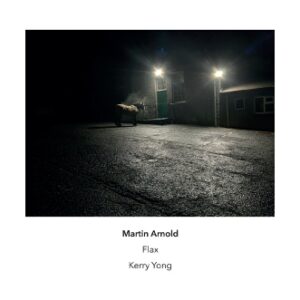Martin Arnold – Flax (CD Review)
Martin Arnold
Flax
Kerry Yong, piano
Another Timbre
Martin Arnold’s solo piano work Flax has a sad backstory. It was originally commissioned by the abundantly talented new music pianist Philip Thomas, who shortly afterward became seriously ill and was unable to premiere the work. Kerry Yong performs the piece in his honor on an Another Timbre CD. The piece was already well underway when this transpired, but one cannot hear the considerable poignancy and elegant gracefulness of Flax without connecting it to Thomas’s loss of health.
Arnold is a Canadian composer whose work is influenced by Morton Feldman and the Wandelweiser Collective. Feldman is a nexus between Arnold and Thomas, whose recordings of Feldman’s complete piano music are superlative. Flax, at over eighty minutes in duration and in a slow tempo throughout, is certainly reminiscent of the aforementioned influences. However, when creating Flax, Arnold also had other considerations to ponder. In the CD’s program note essay, we learn that Thomas had mentioned to Arnold that the composer’s use of the upper register had made the pianist rethink it. Thus, Flax prioritizes the top two octaves of the piano. When writing the piece, Arnold was also considering bebop and early modern jazz, how there are dissonances added to the changes that create harmonic ambiguity. The first two thirds of Flax use extended verticals garnered from this practice. The ending section of the piece returns to modality and organum, both aspects of much of Arnold’s other music.
Thelonious Monk’s voicings and Feldman-esque delicate slowness are an interesting mix. The placement of much of the music in the upper register also reframes the harmony. Until nearly halfway through, when a bass note appears, it feels like an event. At that point, there begins to be a duet between diminished chords and bass notes in the left hand and slow motion bop in the right.
Kerry Yong is a persuasive interpreter of Flax, with a detailed approach to dynamics and phrasing that punctuates distinctive registral spaces in the music. Voicing of the harmony is a pivotal component of this piece, and it is where Yong truly excels, providing a sense of trajectory throughout.
I don’t think that I have heard a Wandelweiser adjacent work that embodies anything close to this one. That said, Flax is a successful experiment from Arnold, stretching his language in surprising and appealing ways. Recommended.
-Christian Carey

